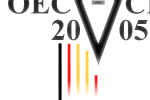 |
 |
 |
 |
 |
 |
 |
||
 |
|
Back to Parlimentary Debate Overview
Time Constraints: A coin toss will determine which team represents the Government and which team represents the Opposition. The resolution will be revealed at the start of the debate. Teams will have fifteen (15) minutes to prepare their initial arguments. The Government will be given the task of preparing an initial argument defending and arguing for the resolution. The Opposition will be given the task of preparing an initial argument refuting and arguing against the resolution. The debates will have the following format:
Any debater exceeding the time limit will be granter fifteen (15) seconds grace to finish their sentence after which they must sit down. Debaters exceeding the time limit will be assessed a mandatory 5 point deduction by each judge. Debaters who use significantly less than the allotted time will not be assessed a timing penalty; however, it will likely affect their scoring in accordance with the marking scheme. In the house, the Government shall sit on the speaker's right with the Opposition on the speakers left. Definition of Resolutions: The Prime Minister must define the resolution and state the contention of the debate during the opening speech. · The definition of the resolution must be debatable. The Prime Minister may not define a truistic or tautologic case. A truism is something that is generally accepted to be true (i.e. the space race accelerated research into rocket design). A tautology is something that is by definition true (i.e. professional engineers are licensed to practice the profession of engineering). · The definition of the resolution must be fair. The Prime Minister may define a resolution that puts the Government, but not the Opposition, at a disadvantage. For example, the definition "The earth is round" is an unfair definition that is difficult or impossible to oppose. On the other hand, the definition "The earth is flat" is a fair definition since it puts the Government, not the Opposition, at a disadvantage. · The definition of the resolution must not force the Opposition into an immoral position. For example, the definition "Innocent people must be protected against engineering mistakes" would force the Opposition to argue that innocent people should not be protected, which, by most people, would be considered an immoral position. · The resolution must be interpreted at face value (i.e. literally). In other words, the debates may not be squirreled. · The definition of the resolution should be tasteful. This is left to the discretion of the debaters. Time-Place setting will not be allowed. Debate If the Prime Minister presents a truistic, tautologic, unfair, or forced immoral case, or does not interpret the resolution at face value, then the Member of the Opposition may redefine the resolution in a debatable manner. If the Government wishes to debate a plan case, the Prime Minister must outline the entire plan. The Member of the Government may not introduce new parts or redefine terms of the plan. If the Opposition wishes to introduce a counter-plan, Member of the Opposition must outline the entire counter-plan. The Leader of the Opposition may not introduce new parts of redefine terms of the counter-plan. Debaters must address all arguments to the speaker and must refer to all persons in the third party. For example, a debater must not directly address an opponent and state, "Your argument is ridiculous because ..." but must directly address the Speaker and state, "Mr. (or Madam) Speaker, the Prime Minister's argument is ridiculous because ..." Also, the use of first name references is not allowed. Debaters may only refer to things that are likely within the knowledge base of an intelligent, reasonably informed person. In other words, debaters may not utilize "specific knowledge" in their arguments. i.e., an intelligent, reasonably informed person is expected to know that Professional Engineers Ontario regulates the profession of engineering in Ontario, but the same person isn't expected to know that Professional Engineers Ontario spent "x" dollars regulating the profession of engineering last year. No new arguments may be presented during the rebuttals. This does not prohibit debaters from bringing up new evidence in support of or counter to a previously raised point as long as the new evidence is brought up in direct response to something that has already been mentioned. Point of Order During a Point of Order, the Speaker stops the debate and the time clock, the debater who was speaking sits down, and the debater raising the Point of Order stands and explains the point in 10-15 seconds. The speaker may ask for a 10-15 second response from the debater accused of breaking the rules. The Speaker will issue a ruling on the point indicating "point well taken", "point not well taken", or "point taken under advisement" which trusts the judges to decide whether or not the point was well taken. The Speaker may inform the judges of the severity of the point for marking purposes. Points of Order will be allowed for the following: · the debater's time has elapsed · unprofessional or offensive behavior or language · definition of a truistic or tautologic case · definition of a unfair case or a case which forces the opposition into an immoral position · interpretation of a resolution not at face value · introduction of parts of a plan by the Member of the Government · introduction of parts of a counter-plan by the Leader of the Opposition · speaking to the opposition instead of the speaker or the use of first name references · the argument relies on specific knowledge not presented to the house · presenting new arguments or facts during the rebuttals · pen-waving (ancient rules treat a pen as a weapon, like a sword) · crossing the center of the House · wearing a hat in the House · Point of Privilege During a Point of Privilege, the Speaker stops the debate and the time clock, the debater who was speaking sits down, and the debater raising the Point of Privilege stands and explains the point in 10-15 seconds. The Speaker will issue a ruling on the point indicating "point well taken", "point not well taken", or "point taken under advisement" which trusts the judges to decide whether or not the point was well taken. The Speaker may inform the judges of the severity of the point for marking purposes. Points of Privilege will be allowed for the following: · personal slandering or insults · direct misquotation by the person speaking Points or Order and Points of Privilege raised on very minor technical issues are discouraged. Any team raising excessive unnecessary points will be penalized. Additional Information Points of Information will not be allowed Heckling is allowed if it is short and witty. Speeches from the floor will not be allowed during the preliminary or semi-final rounds. Speeches from the floor will be allowed during the final debate at the discretion of the speaker and after the judges have left to evaluate the debate. |
 |